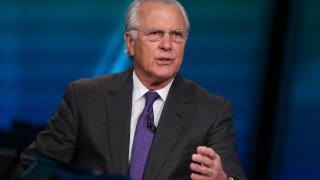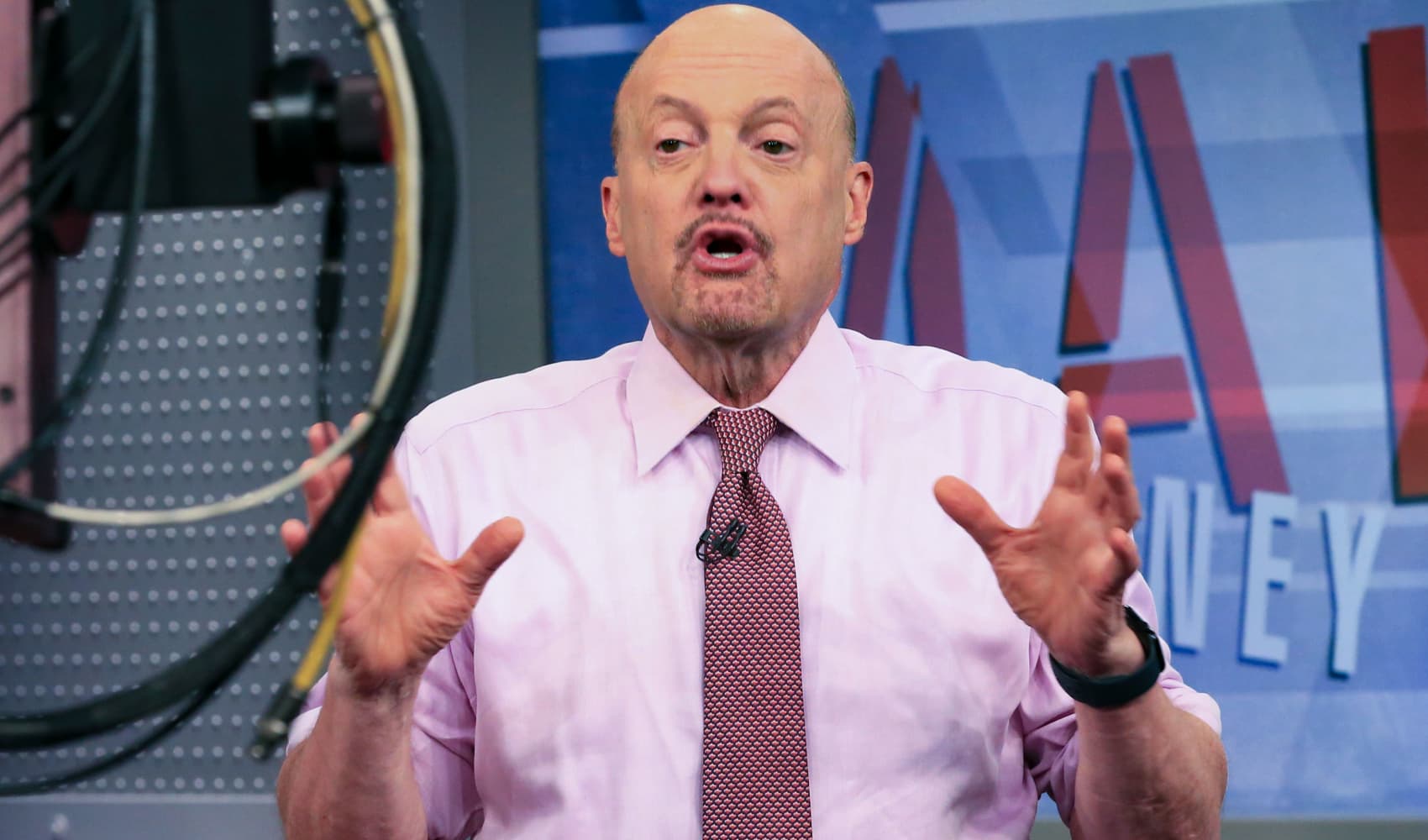
- "It's going to take a great deal of time to regain that respect in the Pacific. I'm really worried about it," former Dallas Fed President Richard Fisher told CNBC.
- Fisher said President-elect Joe Biden will have to get "very creative" in rebuilding that relationship after China and 14 other countries signed a deal to to form the world's largest free-trade bloc.
- In addition to tariff cuts, Fisher said Biden must look to reaffirm a commitment to "rules-based" trade.
President-elect Joe Biden's administration will have to get "creative" in its attempts to rebuild America's relationship with trade partners in the Asia-Pacific region, former Dallas Fed President Richard Fisher told CNBC on Tuesday.
The comments from Fisher, also a former deputy U.S. trade representative, came days after China and 14 other countries in the region signed an agreement to form the world's largest free-trade bloc. The U.S. was not included in the deal, which Fisher said was "not a good thing." Analysts have said the signing of the Regional Comprehensive Economic Partnership strengthens China's influence in the area.
The U.S. had once been "viewed as the most important economy in the world. You couldn't do anything without us. Well, they've done something without us in the Pacific region," Fisher said on "Closing Bell," noting the participating countries represent almost one-third of the world's population.
In addition to China, South Korea, Japan, Australia, Vietnam, and Thailand are among the RCEP signees. "These are growing centers. These are where supply chains are located or headquartered," added Fisher, who worked on the implementation of NAFTA and numerous other agreements as a trade negotiator from 1997-2001. He served as president of the Dallas Fed from 2005 to 2015.
Fisher said Biden will have to work to overcome the approach to the Asia-Pacific region employed by President Donald Trump, who touted an "America First" agenda and launched a major trade war with China that resulted in each side placing billions of dollars of tariffs on the other's goods.
Money Report
"It's going to be very hard. I think the Biden administration is going to have to be very creative in coming up with a new way to figure out new relationships on other planes, not just tariff cuts, but show also that they are going to be rules based, which is what the Trump administration threw to the winds," Fisher said.
While that approach is where Fisher would start, he said the process will be a protracted and challenging one to complete. "It's going to take a great deal of time to regain that respect in the Pacific. I'm really worried about it," added Fisher, who also pointed to the struggles of the Obama administration, in which Biden served as vice president, to get the Trans-Pacific Partnership approved by Congress. Trump was a fierce opponent of TPP and withdrew the U.S. from it days after taking office in 2017.
Some analysts have suggested the economic benefits of the RCEP may be modest, but nonetheless, Fisher said the accord — and America's absence in it— carries important significance. "It gives these folks an advantage in terms of, not just so much tariff cuts, but going back to rules-based trade ... and building relationships that are very important, and supply chains and so on," Fisher said. "We're being cut out and the Biden administration is going to have to figure out a way to get its nose back under that tent."
A representative for Biden's transition team did not immediately respond to CNBC's request for comment. However, Biden was asked Monday whether he believes the U.S. should work to join the newly signed RCEP. He told reporters was "reluctant" to say what the U.S. policy should be because "there's only one president at a time."
"But here's what I can say. We make up 25% of the world's trading capacity, of the economy in the world," said Biden. "We need to be aligned with the other democracies, the other 25% or more, so that we can set the rules of the road instead of having China and others dictate outcomes because they are the only game in town."
He also said priorities for his administration will be to "invest in American workers," so they are more competitive in the globalized economy. And for any trade deal he will negotiate, Biden said labor unions and environmental groups will "be at the table." He added, "I'm not looking for punitive trade deals. The idea that we are poking the finger in the eyes of our friends and embracing autocrats makes no sense to me."






